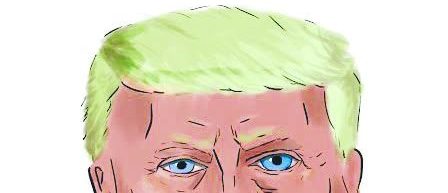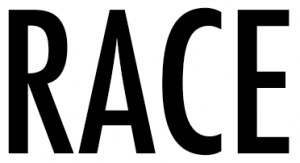How Will Trump’s Policies Affect You? We Broke It Down

When Donald Trump was elected president last week, it left a lot of students at NYU wondering where their place in the world might be, as evidenced by the protests against his victory as well as the rallies supporting marginalized students. His election has sparked incidents across the country and here at NYU — most recently when students found pro-Trump rhetoric on their dorm room door yesterday morning.
But how exactly might a Trump presidency affect NYU students? It’s no secret that his policies positions throughout his campaign were a little vague, but now, we’re two months out from having that question answered for us. So, a few of our writers broke down what students can expect in six major areas of policy.
Click through each issue below to see what Trump has in store.





Education
Miranda Levingston, Staff Writer
Trump advocates for school choice — using public funding to help students below a certain income level attend any public or private school of their choice. His plan to fund school choice involves cutting federal dollars and getting $110 billion from the state level.
Steinhardt professor and Dean Emerita Mary Brabeck said that Trump was outspoken during his campaign about increasing the number of charter schools and putting money into states that support charter schools. This suggests a lean toward financial privatization in education under Trump’s leadership.
“Bringing profit into education is a mistake,” Brabeck said. “The profit mode of education has a very adverse effect on quality — when money becomes the goal, it’s a problem.”
However, she said that the country will know more about what education might look like once Trump appoints his Secretary of Education.
Associate Professor of English Education David Kirkland said that in addition to structural changes within the American education system, he expects to also see a shift in the content: away from academic ethnic studies and a return to more Eurocentric curriculums.
“We can’t talk about education without talking about population and demography,” Kirkland said. “Spaces like the elite universities of this country will change drastically in terms of their demography. Equal opportunity programs will rollback and other divisions of the civil rights act will rollback; we know that those things are at risk for impact.”
He said that there will be less incentive to diversify universities, since under Trump’s leadership, there will be even less incentive to create equity within the education system. He also thinks the 5 percent black population at NYU will decrease under the current president-elect.
Race
Miranda Levingston, Staff Writer
Though Trump’s official platform does not specifically address institutional racism, his election victory instigated concern during rallies and protests over equality for racial minorities in the United States — the Ku Klux Klan even endorsed him while he campaigned. Protesters believe his election validated racial discrimination.
Ann Morning, Associate Professor of Sociology, said that she expects to see affirmative action become less enforced when Trump appoints justices to the Supreme Court, because they will prohibit affirmative action and prevent access from undocumented students.
“We’ve seen it before in the context of Texas or California, where affirmative action positions get struck down,” Morning said. “The next admissions cycle, we see a real difference, a drop of percentage in the minorities who enroll in college.”
Marie Cruz-Soto, Gallatin clinical assistant professor, expressed concern for the safety of NYU’s immigrant students and said that Trump’s anti-politically correct rhetoric will incite hate and make people feel unwelcome and unsafe.
“Sanctuary campuses are necessary for immigrant students to just feel secure in their universities,” Cruz-Soto said. “His language about immigration — about all sorts of marginalized communities — makes it for a very unstable and unwelcoming climate. There can be no democracy if people don’t feel like they are safe.”
Tax Reform
Herman Lee, Staff Writer
Trump has a plan for taxes: to cut individual, business and estate taxes. Stephen Figlewski, a professor of finance at Stern, said that economists from across the political spectrum agree that this is a bad idea.
“Pretty much all professional economists, both on the left and the right thought that what he was suggesting … would greatly reduce the amount of revenue to the government,” Figlewski said. “If he does what he said he was going to do, the total revenue to federal government would go down in the neighborhood of nine or 10 billion dollars, or trillion dollars over the next 10 years or so — these raises would be a terrific conflict.”
Figlewski also said that Trump’s policies will greatly reduce the amount of revenue the government can garner. He said that while politicians claim tax cuts would create a large economic growth and would create revenue, previous attempts at this type of tax policy have failed in the past, especially since tax rates are down.
“That idea was first floated in the early 1980s in the Reagan administration,” Figlewski said. “It was nonsense then; it was nonsense when George W. Bush cut everybody’s taxes and claimed that it wasn’t going to cause deficits; and it’s nonsense now.”
Healthcare
Téa Kvetenadze, Contributing Writer
Donald Trump’s position on healthcare has shifted over the course of his campaign, from supporting abortion to denouncing it. He also pledged to repeal and replace the Affordable Care Act, also known as Obamacare — a program that insures approximately 20 million Americans.
Wagner Professor of Management Thomas D’Aunno said that Trump’s health care plans are not very clear because of the constantly changing stances.
“It’s not as detailed as it might be, because a lot of his campaign was centered on repealing and replacing the Affordable Care Act,” D’Aunno said. “But the replacement was not necessarily all that clear.”
Once Trump became president-elect, he decided to keep two of the plan’s popular aspects: that insurers cannot refuse coverage to people with preexisting health conditions and that children can stay on their parents’ plan until they turn 26 years old.
D’Aunno said this is good for students in college across the nation but only if their parents have coverage. And the story is even more complicated for immigrants and lower-income students without insurance.
“If Medicaid is curtailed, they might not be able to get Medicaid coverage — their families might not be able to get it,” D’Aunno said. “That part of it could be a concern for NYU students.”
However, Trump’s plans for women’s health services, such as abortion, pose a threat to their reproductive rights. He planned to appoint a pro-life Supreme Court justice and wants to repeal Roe v. Wade.
“It frightens me. It’s depressing,” D’Aunno said. “My concern is that access to care — people’s ability to afford to pay and get the services they need — will be limited rather than expanded. That’s my main concern. And that includes women, that includes poor people, that includes immigrants. Access to care would go down and that I feel would be a big shame.
Economy
Coco Wang, Staff Writer
Throughout Donald Trump’s presidential campaign process, he touted his abilities to make America — and the economy — great again. However, according to some economists, such as CAS economics professor Danilo Guaitoli, that might not be the case.
In an email, Guaitoli said that the fewer policies Trump implements in the economy the better off we will be, since he believes Trump’s restrictions to trade and to immigration are not going to help the U.S. economy or employment rates.
“It’s hard to convince people who feel economically insecure of the advantages of free trade and innovation (that are obvious to economists) if they don’t get any of those gains,” Guaitoli said. “But protectionism and a stop to immigration will not bring back steel plants and coal mining to places like Ohio or West Virginia.”
He also said the job problem is not as exaggerated as Trump claims, and Guaitoli believes the best way to lower the unemployment rate is to create new business opportunities.
“Unemployment overall is low now,” Guaitoli said. “The problem is the concentration of that unemployment in some regions and in some segments of the population. What should be done to help those displaced workers (and voters) is to stimulate the creation of new businesses (through less regulations, lower taxes, etc.) and have more training/retraining of people.”
Foreign Affairs
Coco Wang, Staff Writer
Clinical Associate Professor of International Relations John Fousek said it is impossible for Trump to build a concrete wall; however he will use other propaganda to keep his promise symbolically.
“If he feels the pressure to go beyond small steps of building fence, that is, to build a wall, he is not going to do that,” Fousek said. “Politics is about feelings — he hit feelings of grievance and anger and disgruntlement. I believe he campaigned without any conviction and plan, but he is pretty good at symbolism.”
Fousek said that the wall represents keeping people out of America and that one symbolic step results in deporting millions of people from the country. He also thinks that securing the border by other means, such as by technology and electronics, could fulfill his idea to perimeter America.
“Perhaps building something visually dramatic in a limited place that can be photoshopped to reality?” Fousek said of another way Trump could enact his plan. “I’m pretty serious about that.”
Clinical Professor International Relations Shinasi Rama is also a clinical professor of politics with the international relations program, and he said that approximately one-third of NYU students are international — many of which originate from China. And Rama said that regardless of Trump’s depiction of the Chinese as job stealers, all international students will still be welcomed to study and work in the United States.
“What President-elect Trump spoke about was about keeping the criminals and thugs and drug-dealers out of the country,” Rama said. “I myself am an immigrant, albeit I came here for political reasons. The U.S. is open — will always be open — to talented people, and this is part of what has made this country great and special.”
Hama said that while China might try creating problems for its students who want to study at NYU and at other international universities, he thinks that even under a new presidency, more difficult borders should not deter students from attaining an education they want and deserve.
Email the News Team at [email protected].

It's a pretty big question if I'm honest. "Who am I?" I'm a lot of things but we'll just stick with the requisites. One thing is being half the Creative...

























































































































































